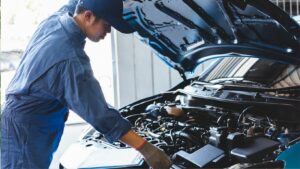Honda Car Maintenance
Regular maintenance is crucial for Honda cars to ensure they run smoothly and avoid costly repairs. It’s essential to understand the benefits of keeping up with regular checks and the potential cost savings associated with proactive maintenance practices.
Regular checks help identify minor issues before they escalate, ensuring Honda cars operate efficiently. By staying on top of maintenance schedules and inspections, owners can prolong the lifespan of their vehicles and enhance overall performance. This proactive approach also improves safety on the road by addressing potential issues before they become serious concerns.
Engaging in regular maintenance for Honda cars can lead to significant cost savings in the long run. By addressing small issues promptly, owners can prevent major breakdowns that often result in expensive repairs. Routine maintenance tasks such as oil changes, filter replacements, and brake inspections are relatively inexpensive compared to the hefty repair bills that may arise from neglecting maintenance schedules. Investing in regular maintenance not only extends the longevity of the vehicle but also saves money by avoiding preventable damages and ensuring optimal functionality.
Key Maintenance Tips for Honda Vehicles
Honda Car Maintenance is crucial for their longevity and performance. By following specific maintenance tips, owners can ensure their cars operate smoothly and avoid costly repairs.
Regular oil changes are essential for Honda vehicles to keep the engine running efficiently. It’s recommended to change the oil every 5,000 to 7,500 miles to maintain optimal engine function. Additionally, checking and replacing other fluids such as transmission fluid, brake fluid, and coolant on schedule is vital for the overall health of the vehicle.
Regular tire inspections are necessary to ensure safety and enhance fuel efficiency. Honda owners should check tire pressure, tread depth, and overall condition monthly. Rotating tires every 5,000 to 7,500 miles helps extend their lifespan and promotes even tire wear, resulting in a smoother and safer driving experience
Brake maintenance is critical for the safety of Honda vehicles. Inspecting brake pads, rotors, and fluid levels regularly is imperative to ensure optimal braking performance. Any unusual noises, vibrations, or decreased responsiveness should prompt immediate attention from a professional technician to prevent potential safety hazards on the road.
Common Issues in Honda Cars and How to Address Them
Honda Car Maintenance, known for their reliability, can still encounter common issues that require attention. Understanding these problems and knowing how to address them can help maintain the performance of your Honda vehicle.
Issues with the engine are critical and can impact the overall performance of a Honda car. Common engine problems in Honda vehicles include:
- Faulty Spark Plugs: Worn-out spark plugs can cause misfiring, rough idling, and reduced fuel efficiency.
- Air Filter Blockages: Clogged air filters can restrict airflow to the engine, leading to decreased performance and fuel economy.
- Low Engine Oil: Inadequate oil levels can result in poor lubrication, overheating, and potential engine damage.

Addressing engine problems promptly is crucial to prevent further damage. Regularly checking and maintaining spark plugs, air filters, and engine oil levels can help prevent these issues.
The electrical system in Honda cars is sophisticated but can experience glitches over time. Common electrical system problems in Honda vehicles include:
- Faulty Battery: A weak or dead battery can lead to starting issues or complete failure to start.
- Faulty Alternator: A malfunctioning alternator can cause electrical system failures due to a lack of power generation.
- Faulty Wiring: Damaged or frayed wiring can result in electrical shorts, affecting various components in the car.
Addressing electrical system glitches requires proper diagnosis and repair by a qualified technician. Regular inspections of the battery, alternator, and wiring can help prevent electrical failures in your Honda car.Maintaining a Honda vehicle is essential for longevity and performance. Regular upkeep, such as oil changes and fluid checks, can prevent costly repairs. Addressing common issues like engine problems promptly is crucial. Following the recommended maintenance schedule for newer and older models is key. Choosing a certified Honda mechanic and using genuine parts is vital for optimal results. By prioritizing maintenance, Honda owners can enjoy smooth driving experiences and preserve their car’s value.

